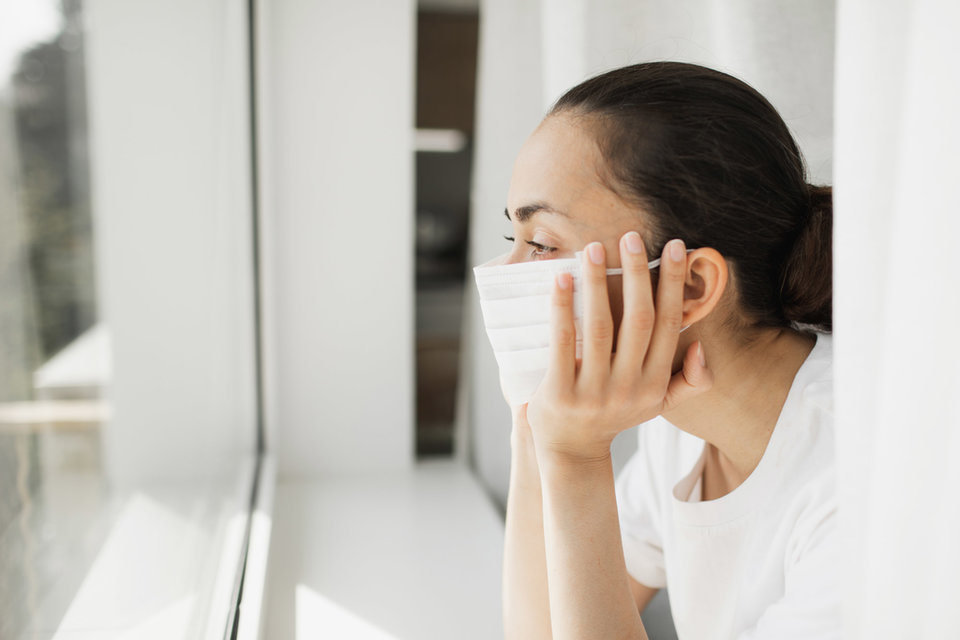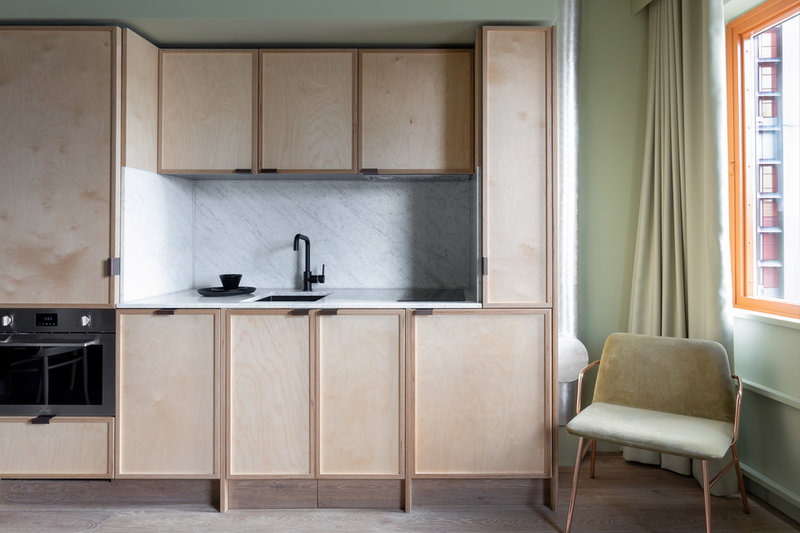Insight
The challenges of hotel quarantine
After a disastrous 2020 the potential is there for hotel employees to turn to other, more secure, industries, so how can hoteliers attract talent to the sector? Alex Love finds out what hoteliers can do to encourage potential employees to pursue a career in hospitality.
In an attempt to curb the spread of new virus variants, hotels around the world have become designated quarantine locations for travellers. However, multiple reports indicate that travellers are breaching hotel quarantine and questions have been raised about the viability of using hotels for quarantine in the long-term. Alex Love finds out more about the use of hotels as quarantine hubs.

I
nternational travel has been one of the largest contributors to the global spread of the coronavirus. Evidence has shown that quarantine measures for international arrivals are an effective tool in preventing new infections, particularly from Covid variants.
As purpose-built facilities mostly don’t exist on the scale required to deal with the daily influx of thousands of travellers, hotels have been turned into makeshift quarantine hubs.
Such measures have arguably seen hotels busier than at any other point during the pandemic in many countries. And cleaning protocols have been ramped up significantly.
However, no hotel was ever designed to be used for quarantining during a global health emergency. As a result, flaws in the system are almost inevitable.
Quarantine rules vary from country to country, with required stays typically ranging from one week to 21 days and must be booked in advance. In some countries, only visitors travelling from a set list of countries must quarantine in a hotel. Yet in others, the rules apply to all international travellers.
Almost all ‘packages’ include accommodation, food, transportation and operations costs. In the early stages of the pandemic, some countries or states covered the costs of the hotel quarantine. But after one year of living with the disease, most travellers now have to pay themselves.
For the quarantine system to be effective, compliance is required from travellers. And rules may be enforced by security services.
In New Zealand, one man escaped his hotel room by tying bedsheets together to climb out of the window. Meanwhile in Ireland, two Irish citizens arrived back in the country from Dubai and refused to quarantine. They were arrested, appeared in court and then returned to hotel quarantine.

Guests at Locke’s design-led aparthotels have access to full kitchen facilities in their apartment.
Getting there
Before the UK started steaming ahead with its vaccine roll-out, the government was often accused of being too slow to act with its coronavirus strategy.
The country has recorded 4.37 million positive tests for Covid-19, and more than 127,100 deaths for people who tested positive for coronavirus within 28 days before they died.
Almost a year since a global pandemic was declared, the UK Government announced it would be introducing a ten-day hotel quarantine and booked a reported 28,000 rooms in hotels near its largest airports. This replaced the previous self-isolation requirements.
Measures would apply to any travellers arriving in England who have passed through the government’s ‘red list’ of around 40 countries, considered to have the highest risks of infection or where new virus variants have been detected. These include countries in the Middle East, Africa, South Asia and South America. The list can be updated with very little notice.
Any arrivals caught breaching quarantine could be hit with fines of up to £10,000.
The UK’s quarantine security has been outsourced to companies that include G4S, Corporate Travel Management and Corps Security.
Wales and Northern Ireland are also using the red list as a guide for who needs to quarantine upon arrival. Meanwhile in Scotland, hotel quarantine applies to all international arrivals regardless of where they flew in from.
At £1,750 per adult traveller, the quarantine package does not come cheap but is comparable with the prices in other countries. The cost is significantly reduced for children aged over 12 at £650, and £325 for those aged five to 12, while there is no fee for children under five.
Arrivals from outside the red list must have a record of a negative test 72 hours before their departure flight. Upon arrival in England, these travellers are required to self-quarantine for ten days and must take PCR tests on days two and eight.
Any arrivals caught breaching quarantine could be hit with fines of up to £10,000. Travellers also face the threat of being jailed for ten years if they’re found to have travelled from a red list country and given false information on their passenger locator form.
A strict approach
Some of the strictest quarantine systems tend to be in countries with the best records of combating the coronavirus. For example, Singapore has been praised around the world for its approach to handling Covid-19 infections.
Singapore has a population of 5.7 million, over the relatively small area of 784km², but has had recorded approximately 65,000 positive tests for Covid-19, with just 30 deaths. By comparison, London has a larger population, at almost nine million across 1,572km². Yet the UK capital has recorded approximately 713,805 positive tests and more than 15,920 deaths from people that had tested positive for Covid.
And while Singapore’s results are clear to see, its approach is comparatively hard line. Travellers are confined to their hotel rooms for 24 hours a day. Food and other ordered items are left outside rooms. When guests arrive at the hotel, their temperature is taken and they receive a thermometer that they must use to submit three readings a day.
Travellers are confined to their hotel rooms for 24 hours a day.
Some of the strictest quarantine systems tend to be in countries with the best records of combating the coronavirus. For example, Singapore has been praised around the world for its approach to handling Covid-19 infections.
Singapore has a population of 5.7 million over the relatively small area of 784km² but has had recorded approximately 65,000 positive tests for Covid-19 with just 30 deaths. In comparison, London has a larger population at almost nine million across 1,572km². Yet the UK capital has recorded approximately 713,805 positive tests and more than 15,920 deaths from people who had tested positive for Covid.
And while Singapore’s results are clear to see, its approach is comparatively hard line. Travellers are confined to their hotel rooms for 24 hours a day. Food and other ordered items are left outside rooms. When guests arrive at the hotel, their temperature is taken, and they receive a thermometer that they must use to submit three readings a day.
[PQ: Travellers are confined to their hotel rooms for 24 hours a day.]
Room key cards are set to only work once, meaning that guests will be permanently locked out of their rooms if they leave, and authorities will be notified.
On their 11th day, guests receive a PCR test. Provided the result is negative, guests are permitted to leave the hotel in another three days.
Meanwhile, in Hong Kong, arrivals can choose their hotel but must quarantine there for 21 days. Authorities have recently relaxed this period to 14 days from countries with ultra-low Covid cases such as Australia, New Zealand and Singapore. Travellers from these countries will be tested and monitored afterwards for a further seven days.
Easing restrictions
New Zealand is regarded as a world leader in its coronavirus measures. It has recorded more than 2,580 cases and just 26 deaths.
Its international borders closed before the end of March 2020 and have yet to fully reopen more than a year later. People can only travel to New Zealand if they have a critical purpose for their visit. Anyone arriving in the country must undergo a 14-day quarantine at a designated hotel and pay NZ$3,100 to cover the costs.
This fee even applies to returning New Zealand citizens who are staying for under six months, which attracted critisicm from some Kiwis living overseas.
Many countries are likely to have some form of quarantine measures in place for international travellers.
Despite this, life is almost back to normal. New Zealand looks set to establish a travel corridor with Australia again, which also has a strong record in controlling the virus.
Australia is currently closed to international tourists and there are weekly limits on the number of visitors permitted to arrive in each state. In New South Wales, the limit is 3,000.
Even with the vaccine roll-out gathering pace, the new variants appearing throughout the world mean that many countries are likely to have some form of quarantine measures in place for international travellers for some time yet. And it is unknown exactly when all hotels will be able to open again and be used for their original purpose.